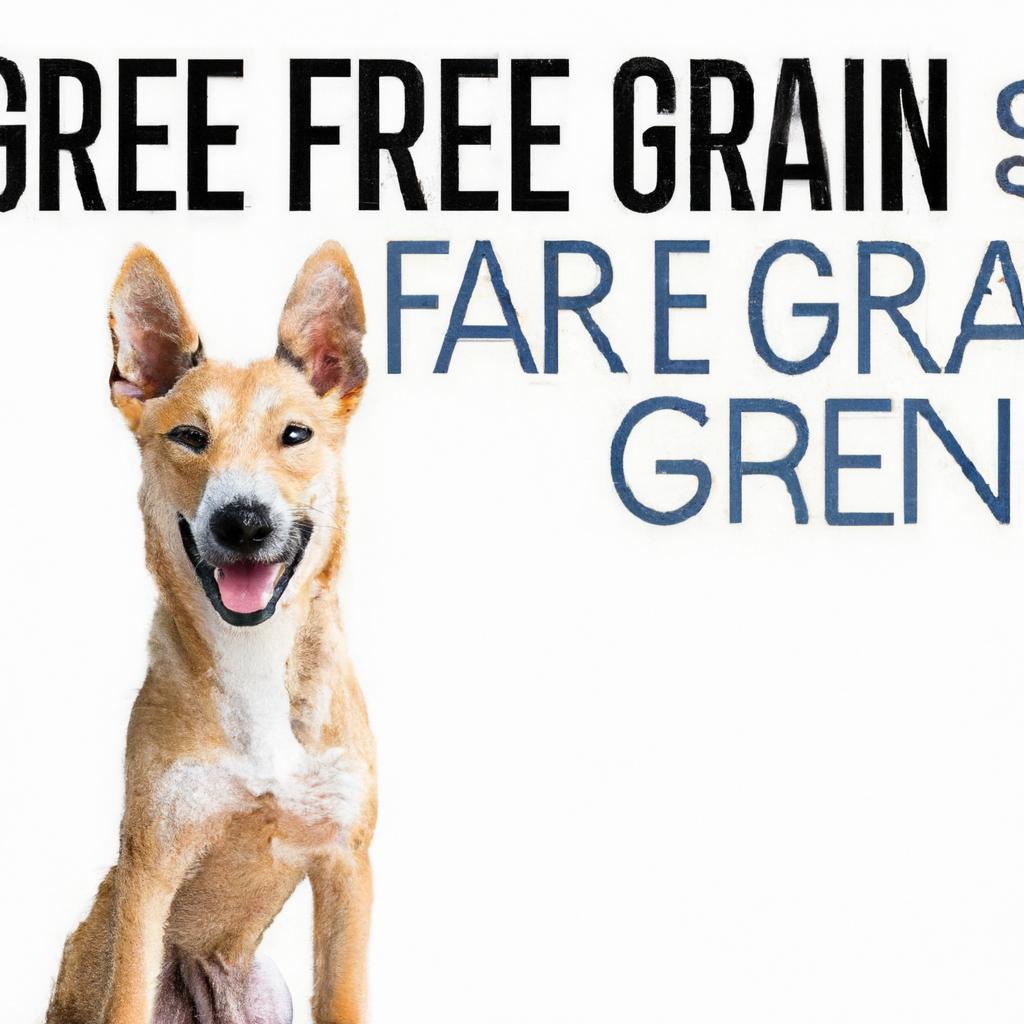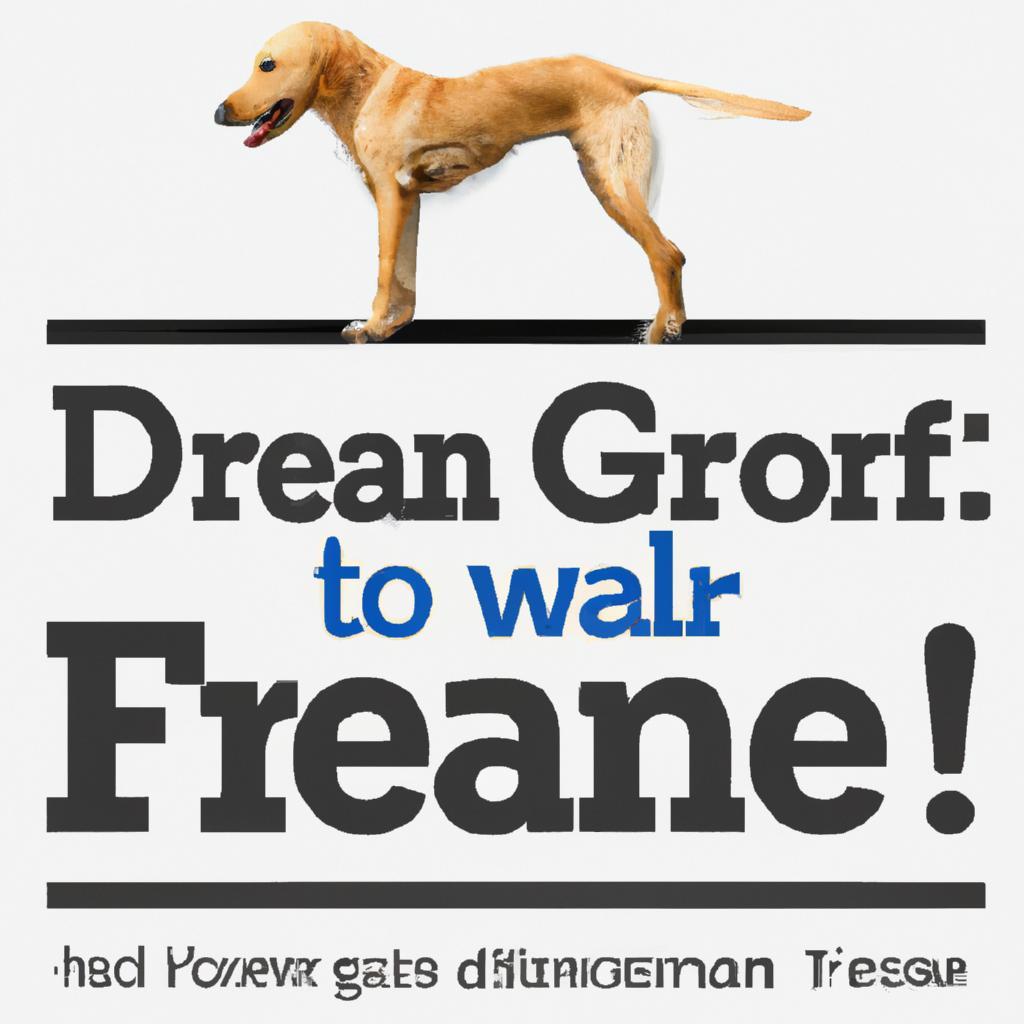Once upon a time in a bustling pet clinic, a worried owner named Sarah sought advice for her overweight Labrador, Max. After researching, she stumbled upon grain-free diets, believing they were the key to shedding those extra pounds. With a professional’s guidance, she learned that while grain-free can benefit some dogs, it’s not a one-size-fits-all solution. The real secret? A balanced diet tailored to Max’s needs, combined with regular exercise. Sarah discovered that understanding her dog’s unique requirements was the true path to a healthier, happier life for Max.
Contents
- Understanding the Nutritional Needs of Dogs for Effective Weight Management
- Evaluating the Benefits and Drawbacks of Grain-Free Diets for Canine Health
- Identifying Key Ingredients in Grain-Free Dog Foods for Optimal Weight Loss
- Implementing a Balanced Approach to Canine Diets for Sustainable Weight Control
- Q&A
Understanding the Nutritional Needs of Dogs for Effective Weight Management
When considering the best diet for dogs, particularly for those needing to shed a few pounds, it’s essential to understand their unique nutritional requirements. Dogs are omnivores, which means they thrive on a balanced diet that includes proteins, fats, and carbohydrates. While some pet owners may lean towards grain-free diets, it’s crucial to recognize that not all grains are detrimental to a dog’s health. In fact, whole grains can provide valuable nutrients and fiber that support digestion and overall well-being.
One of the primary factors in effective weight management is the quality of protein in a dog’s diet. **High-quality protein sources** help maintain muscle mass while promoting fat loss. When selecting a food, look for options that list real meat as the first ingredient, ensuring that your dog receives the essential amino acids necessary for optimal health. Additionally, incorporating **lean protein sources** such as chicken, turkey, or fish can aid in weight loss while keeping your dog satisfied and energized.
Another critical aspect to consider is the role of **healthy fats** in a dog’s diet. While it may seem counterintuitive, fats are essential for energy and support various bodily functions. Opt for diets that include sources of omega-3 and omega-6 fatty acids, which can help reduce inflammation and promote a healthy coat. However, moderation is key; too much fat can lead to weight gain. Therefore, it’s important to balance fat intake with overall caloric consumption.
Lastly, the inclusion of **fiber-rich ingredients** can significantly aid in weight management. Fiber helps dogs feel full longer, reducing the likelihood of overeating. Ingredients such as sweet potatoes, peas, and pumpkin are excellent sources of fiber that can be beneficial in a weight-loss diet. When formulating a feeding plan, consider the overall caloric density of the food and ensure that it aligns with your dog’s specific weight loss goals. By focusing on a well-rounded diet that meets their nutritional needs, you can effectively support your dog’s journey to a healthier weight.
Evaluating the Benefits and Drawbacks of Grain-Free Diets for Canine Health
When considering dietary options for dogs, grain-free diets have gained significant attention, particularly in the context of weight loss. Advocates of grain-free nutrition argue that eliminating grains can lead to improved digestion and enhanced nutrient absorption. Many dogs, especially those with food sensitivities, may experience fewer gastrointestinal issues when grains are removed from their diet. This can result in a more efficient metabolism, potentially aiding in weight management and overall health.
However, it is essential to recognize that not all dogs require a grain-free diet. Some breeds thrive on grains, which can provide essential nutrients and energy. Whole grains like brown rice and oats are rich in fiber, promoting satiety and helping to control hunger. Additionally, grains can be a valuable source of carbohydrates, which are crucial for active dogs. Therefore, a one-size-fits-all approach may not be suitable, and individual dietary needs should be assessed.
Another consideration is the potential for nutritional imbalances in grain-free diets. Many grain-free dog foods substitute grains with high levels of protein or alternative carbohydrates, such as potatoes or peas. While these ingredients can be beneficial, excessive protein intake may lead to health issues, including kidney strain in predisposed dogs. Moreover, some grain-free formulations have been linked to a rise in canine dilated cardiomyopathy (DCM), a serious heart condition. Pet owners must be vigilant and consult with a veterinarian to ensure their dog’s diet is balanced and safe.
Ultimately, the decision to adopt a grain-free diet should be made with careful consideration of the dog’s unique health profile and lifestyle. While some dogs may benefit from a grain-free approach, others may find a balanced diet that includes grains more advantageous for weight loss and overall well-being. Regular veterinary check-ups and open communication with pet nutrition experts can help pet owners navigate the complexities of canine diets, ensuring that their furry companions receive the best possible nutrition tailored to their needs.
Identifying Key Ingredients in Grain-Free Dog Foods for Optimal Weight Loss
When considering grain-free dog foods for weight loss, it’s essential to focus on the **key ingredients** that contribute to a balanced diet while promoting a healthy weight. High-quality protein sources are paramount; they not only support muscle maintenance but also help dogs feel fuller for longer. Look for options that list real meat, such as chicken, beef, or fish, as the first ingredient. This ensures that your dog receives the necessary nutrients without excess calories.
Another critical component to consider is the inclusion of **healthy fats**. While it may seem counterintuitive, fats are vital for energy and overall health. Opt for dog foods that contain sources of omega-3 and omega-6 fatty acids, such as fish oil or flaxseed. These fats can aid in weight management by promoting a healthy metabolism and reducing inflammation, which is particularly beneficial for overweight dogs.
In addition to proteins and fats, **fiber-rich vegetables** play a significant role in grain-free diets. Ingredients like sweet potatoes, peas, and pumpkin not only provide essential vitamins and minerals but also contribute to a feeling of fullness without adding excessive calories. Fiber helps regulate digestion and can assist in maintaining a healthy weight by slowing down the absorption of nutrients, leading to a more gradual release of energy.
Lastly, be mindful of the **absence of fillers and artificial additives**. Many grain-free dog foods are formulated without corn, soy, or wheat, which can be beneficial for dogs with food sensitivities. However, it’s crucial to ensure that the food is still nutritionally balanced. Look for products that are free from artificial preservatives, colors, and flavors, as these can contribute to weight gain and overall health issues. By selecting a grain-free dog food that emphasizes these key ingredients, you can support your dog’s weight loss journey effectively.
Implementing a Balanced Approach to Canine Diets for Sustainable Weight Control
When considering the dietary needs of our canine companions, it’s essential to adopt a holistic perspective that prioritizes balance and sustainability. A well-rounded diet should include a variety of nutrients, rather than focusing solely on the absence of grains. While some pet owners may believe that grain-free diets are inherently better for weight loss, it’s crucial to recognize that the quality of ingredients and overall caloric intake play a more significant role in achieving and maintaining a healthy weight.
**Whole food ingredients** should be at the forefront of any canine diet. Instead of eliminating grains entirely, consider incorporating high-quality, digestible grains such as brown rice or quinoa, which can provide essential fiber and nutrients. These ingredients can help promote satiety, reducing the likelihood of overeating. Additionally, **lean proteins** and **healthy fats** should be included to support muscle maintenance and overall health, ensuring that your dog receives a balanced array of nutrients necessary for optimal functioning.
Moreover, it’s important to focus on the **caloric density** of the food. Grain-free options often contain higher levels of protein and fat, which can lead to increased calorie consumption. This is particularly relevant for dogs that are less active or prone to weight gain. Instead of simply switching to a grain-free diet, pet owners should evaluate the overall caloric content and adjust portion sizes accordingly. Consulting with a veterinarian can provide tailored recommendations based on your dog’s specific needs and lifestyle.
Lastly, **monitoring your dog’s weight** and adjusting their diet as necessary is vital for long-term success. Regular weigh-ins and body condition assessments can help identify any changes that may require dietary adjustments. By fostering a balanced approach to your dog’s diet, you can promote sustainable weight control while ensuring they receive the nutrients they need to thrive. Remember, a healthy dog is a happy dog, and a well-planned diet is the cornerstone of their well-being.
Q&A
-
Is grain-free dog food healthier for my dog?
While grain-free diets can be beneficial for some dogs, particularly those with grain allergies, they are not inherently healthier for all dogs. It’s essential to consult with your veterinarian to determine the best diet for your dog’s specific health needs.
-
Can grain-free diets help with weight loss in dogs?
Grain-free diets may aid in weight loss for some dogs, but the key factor is the overall caloric intake and nutritional balance. Focus on high-quality protein sources and appropriate portion sizes rather than solely eliminating grains.
-
Are there any risks associated with grain-free diets?
Yes, some studies have linked grain-free diets to an increased risk of canine dilated cardiomyopathy (DCM). It’s crucial to choose a balanced diet and consult your veterinarian to ensure your dog receives all necessary nutrients.
-
What should I consider when choosing a dog food for weight loss?
When selecting dog food for weight loss, consider the following:
- Protein content: Look for high-quality protein sources.
- Caloric density: Choose foods that are lower in calories but still nutrient-dense.
- Fiber: Foods high in fiber can help your dog feel full.
- Consultation: Always consult your veterinarian for personalized recommendations.
while grain-free diets may offer benefits for some dogs, they are not a one-size-fits-all solution for weight loss. Consult your veterinarian to determine the best dietary approach tailored to your dog’s unique needs for optimal health and weight management.

大家好,我是彼得潘,專業的手法身體治療師。我喜歡探索和研究各種主題,並透過與人工智慧的合作分享專業、實用、有趣的文章。我們定期進行人工審核,以確保內容的準確性。如果您發現文章中有任何不準確的地方,請隨時與我們聯繫,我們會及時糾正。您可以透過 [email protected] 與我們聯繫。



